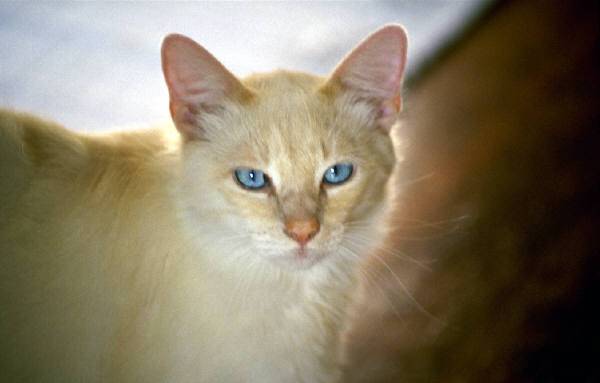By Dr. Michael W. Fox…
The main-stream, multinational pet food industry is a highly profitable livestock, seafood and manufactured human food and beverage industry- byproduct recycling component of industrial agriculture—agribusiness. This agribusiness is supported and subsidized by U.S. consumer-tax payers. Millions of tons of conventional manufactured cat and dog foods have been recalled because of Salmonella, E.coli Lysteria and other bacterial contamination and also because of mycotoxins—poisonous molds that can destroy the liver and impair the nervous, endocrine and immune systems, and cause death. Their imports of jerky treats manufactured in China have sickened and killed thousands of dogs and as yet the toxin’s involved have not yet been identified by the FDA. And imported cheap protein supplement (melamine) from China sickened and killed thousands of dogs and cats in 2007—and soon after, Chinese infants whose milk formula included this ingredient.
Other pet food recalls have been due to a lack of or excess of additive supplements such as taurine and riboflavin which are needed because processing destroys what is left of them in the already nutrient-depleted and too often biologically inappropriate byproducts used in most manufactured pet foods. The copper sulfate added to most dog foods may be responsible, in part, for the increased incidence of liver disease in dogs, and the high cereal content in cat foods to obesity diabetes, pancreatitis and other health problems. Pesticide residues in these plant ingredients, grown on nutrient-deficient soils, may be a factor in the high incidence of inflammatory bowel disease and cancer in companion animals.
One additive to make canned pet food more gravy-like, called carrageenan, as well as the carcinogenic and endocrine-disrupting azo-dye food coloring agents, are banned in many other countries in human foods and beverages. ( For more details see my book, co-authored by veterinarians Prof. Marion E. Smart and Dr. Elizabeth Hodgkins, Not Fit for a Dog: The Truth About Manufactured Dog & Cat Food, Fresno CA Quill Driver Books, 2009).
As efficient and cost-saving this highly profitable practice of recycling into pet and livestock feed may be for the companion animal and farmed animal (including fish) feed industries, safety and nutritional quality concerns continue to be issues regulatory agencies (FDA & USDA) are hard pressed to monitor and rectify. This is because the extremely complex international industrial food system has internal problems such as nutrient-deficient soils and crops along with agrichemical and animal drug residues that call for entirely different, ecologically sound, sustainable and humane farming practices.
Primary, whole, minimally processed human food-grade quality ingredients should be fed, in biologically appropriate proportions, to companion cats and dogs, ideally with no preservatives, as with the rising number of additive and preservative-free frozen and freeze-dried pet foods now on the market, some organically certified and with no GMOs. Fresh whole foods mean better health and I advocate as an alternative to freeze-dried and frozen cat and dog minimally processed whole foods people making their own foods from basic ingredients from the same stores that they go to for their own non-manufactured dietary staples.
The advent of the science of nutrigenomics is opening the way for an entirely new approach to human and animal nutrition and how food is produced and diets formulated. (For more details see W. Jean Dodds DVM and Diana R.Laverdure, Canine Nutrigenomics. Wenatchee, Washington, Dogwise Publishing 2015).
Companion animals and their diet-related diseases are canaries and guinea pigs down the consumer food chain mineshaft and market-testing laboratory. That they get better and have healthier offspring when fed biologically appropriate whole foods, with some essential trace mineral and other nutrient-balancing additives with nothing more other than probiotics and prebiotics, is an indicator of how farming practices and the agribusiness food industry, as well as our own consumer habits, must change.
I have a degree of respect for the pet food industry for its contributions to the science of animal nutrition and related animal health. But I have an even greater degree of sympathy for the challenges they face in securing affordable, healthful and safe ingredients from multiple sources from around the world for companion animals and at the same time avoiding costly recalls and class action law suits when dogs and cats sicken and even die from consuming their “Scientifically Formulated” and often “Veterinarian Approved” approved products.
More healthful foods for all is a distant, attainable ideal but not yet a reality. But less un-healthful foods for us and our animal companions is an immediate, achievable goal.
Dr. Michael W. Fox
http://www.drfoxvet.com/



































Gillian Howkins
September 26, 2017 at 2:58 pm
Hi my Westie cross passed away in January. Despite rigorous tests the vets were unable to diagnose his illness. Chronic diarrhoea loss of weight, loss of appetite. They came to the conclusion it was his liver/immune system, but they didn’t know. Sadly I found Ruben dead in the kitchen. I’m interested in what you have to say. I have got another dog now exactly same cross breed Jack Russell x Westie. What should I feed her? She is on Hills science diet. Also what is your opinion on innoculations.
Many thanks
Gilly Howkins
YOgi Devendra
March 1, 2019 at 1:28 am
hill’s is not a good diet contrary to what they would have you believe. buy Susan’s LIST here: https://truthaboutpetfood.com/the-list/
Sherry Gauvin
May 16, 2021 at 12:04 pm
A raw food diet designed for your particular breed.